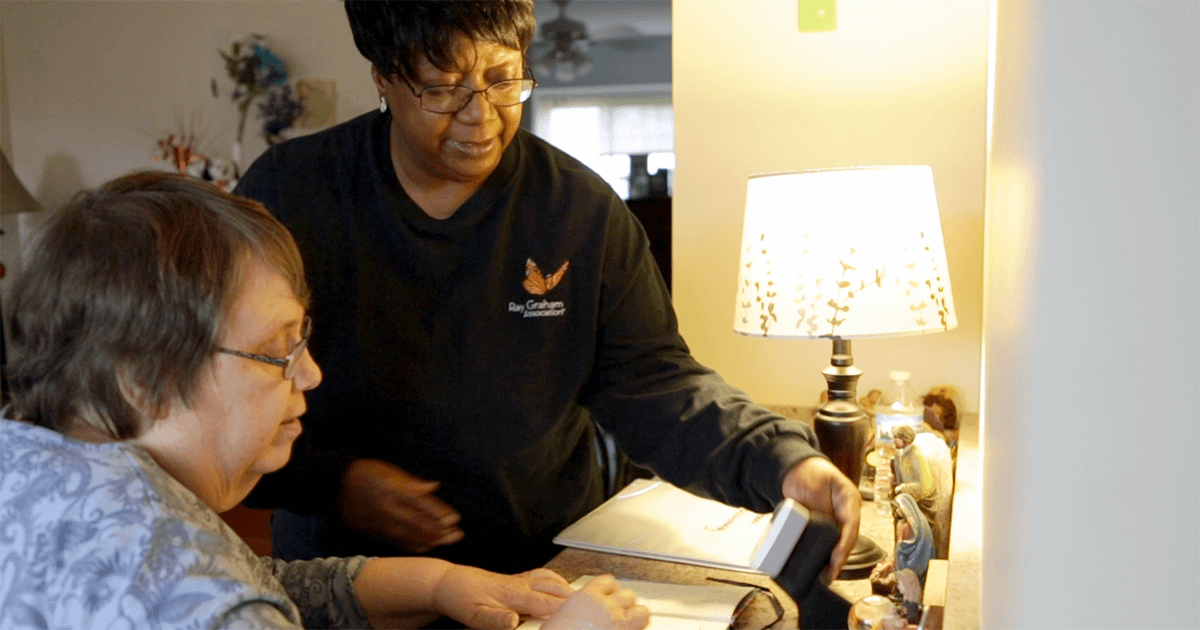CHICAGO – Approximately 27,000 children and adults with developmental disabilities throughout Illinois are cared for by skilled public service workers who struggle with poverty-level wages. The reason is the state’s failure to raise the reimbursement rates for their nonprofit agency employers.
These front-line workers, known officially as Direct Support Personnel (DSPs), provide care for some of the state’s most vulnerable residents in community-based settings. Yet, ironically, their low wages make these critical employees vulnerable themselves.
“In order to make ends meet, I have to work overtime,” explains Audrey Lake, a DSP employed by the Ray Graham Association, a nonprofit agency providing community-based care for adults with developmental disabilities. Lake, also a member of AFSCME Local 3492 (Council 31), adds, “I work long hours because I have to, because of my financial situation.”
In an effort to increase their wages to a minimum $15 an hour, Council 31 is working with a coalition of community-based nonprofit agencies, parents of clients under their care – and the DSPs themselves – to make the public aware of their plight in order to increase pressure on elected officials to do the right thing.
“Fifteen dollars an hour would do so much for me and my family,” said Shekeira Giddens, a DSP at Clearbrook, Inc., single mother of two and a member of AFSCME Local 2871. “I work long hours and pick up 35 hours of overtime each week to try to give my two kids a normal childhood.”
Due to the low wages, Ray Graham Association has a hard time attracting qualified employees, which increases turnover that ultimately hurts the quality of the care that clients receive.
“It has been eight years since the state of Illinois has passed along any cost of doing business adjustments to community providers,” acknowledged Kim Zoeller, CEO of the Ray Graham Association. “In those eight years, inflation has gone up 14 percent.”
George H., whose son Clifton has been receiving care for more than 10 years, knows how important it is that the state pay his son’s caregivers a living wage. “When I watch what the DSPs do for my son, and for others with disabilities on a daily basis, they certainly deserve more. I don’t know how they can survive on $9.35 an hour.”
